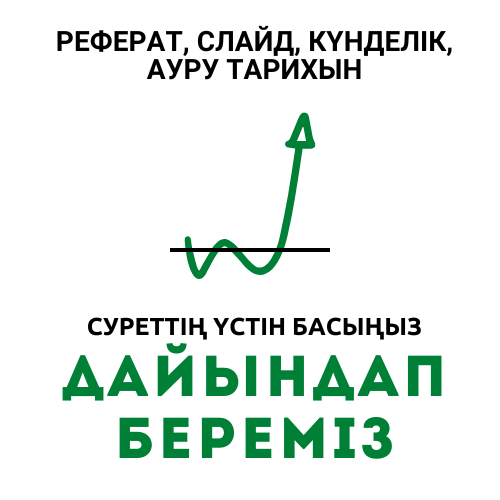The sociology of education is the study of how public institutions and individual experiences affect education and its outcomes. It is mostly concerned with the public schooling systems of modern industrial societies, including the expansion of higher, further, adult, and continuing education.
Education has often been very much so seen as a fundamentally optimistic human endeavor characterized by aspirations for progress and betterment. It is understood by many to be a means of overcoming handicaps, achieving greater equality, and acquiring wealth and social status. Education is perceived as a place where children can develop according to their unique needs and potential. It is also perceived as one of the best means of achieving greater social equality. Many would say that the purpose of education should be to develop every individual to their full potential, and give them a chance to achieve as much in life as their natural abilities allow (meritocracy). Few would argue that any education system accomplishes this goal perfectly. Some take a particularly negative view, arguing that the education system is designed with the intention of causing the social reproduction of inequality.
- Main part
Political arithmetic
The Political Arithmetic tradition within the sociology of education began with Hogben (1938) and denotes a tradition of politically critical quantitative research dealing with social inequalities, especially those generated by social stratification (Heath 2000). Important works in this tradition have been (Glass 1954), (Floud, et al. 1956) and (Halsey, et al. 1980). All of these works were concerned with the way in which school structures were implicated in social class inequalities in Britain. More recent work in this tradition has broadened its focus to include gender, ethnic differentials and international differences. While researchers in this tradition have engaged with sociological theories such as Rational Choice Theory and Cultural Reproduction Theory, the political arithmetic tradition has tended to remain rather skeptical of ‘grand theory’ and very much concerned with empirical evidence and social policy. The political arithmetic tradition was attacked by the ‘New Sociology of Education’ of the 1970s which rejected quantitative research methods. This heralded a period of methodological division within the sociology of education. However, the political arithmetic tradition, while rooted in quantitative methods, has increasingly engaged with mixed methods approaches.
Structural functionalism
Structural functionalists believe that society leans towards social equilibrium and social order. They see society like a human body, in which institutions such as education are like important organs that keep the society/body healthy and well.
Socialization
Social health means the same as social order, and is guaranteed when nearly everyone accepts the general moral values of their society. Hence structural functionalists believe the aim of key institutions, such as education, is to socialize children and teenagers. Socialization is the process by which the new generation learns the knowledge, attitudes and values that they will need as productive citizens. Although this aim is stated in the formal curriculum, it is mainly achieved through the hidden curriculum, a subtler, but nonetheless powerful, indoctrination of the norms and values of the wider society. Students learn these values because their behavior at school is regulated (Durkheim in) until they gradually internalize and accept them.
Filling roles in society
Education must also perform another function: As various jobs become vacant, they must be filled with the appropriate people. Therefore, the other purpose of education is to sort and rank individuals for placement in the labor market [Munro, 1997]. Those with high achievement will be trained for the most important jobs and in reward, be given the highest incomes. Those who achieve the least, will be given the least demanding (intellectually at any rate, if not physically) jobs, and hence the least income.
According to Sennet and Cobb however, “to believe that ability alone decides who is rewarded is to be deceived”. Meighan agrees, stating that large numbers of capable students from working-class backgrounds fail to achieve satisfactory standards in school and therefore fail to obtain the status they deserve. Jacob believes this is because the middle class cultural experiences that are provided at school may be contrary to the experiences working-class children receive at home. In other words, working class children are not adequately prepared to cope at school. They are therefore “cooled out” from school with the least qualifications, hence they get the least desirable jobs, and so remain working class. Sargent confirms this cycle, arguing that schooling supports continuity, which in turn supports social order. Talcott Parsons believed that this process, whereby some students were identified and labeled educational failures, “was a necessary activity which one part of the social system, education, performed for the whole”. Yet the structural functionalist perspective maintains that this social order, this continuity, is what most people desire.
Education and social reproduction
The perspective of conflict theory, contrary to the structural functionalist perspective, believes that society is full of vying social groups with different aspirations, different access to life chances and gain different social rewards. Relations in society, in this view, are mainly based on exploitation, oppression, domination and subordination. Many teachers assume that students will have particular middle class experiences at home, and for some children this assumption isn’t necessarily true. Some children are expected to help their parents after school and carry considerable domestic responsibilities in their often single-parent home. The demands of this domestic labor often make it difficult for them to find time to do all their homework and thus affects their academic performance.
Where teachers have softened the formality of regular study and integrated student’s preferred working methods into the curriculum, they noted that particular students displayed strengths they had not been aware of before. However few teachers deviate from the traditional curriculum, and the curriculum conveys what constitutes knowledge as determined by the state – and those in power. This knowledge isn’t very meaningful to many of the students, who see it as pointless. Wilson & Wyn state that the students realise there is little or no direct link between the subjects they are doing and their perceived future in the labour market. Anti-school values displayed by these children are often derived from their consciousness of their real interests. Sargent believes that for working-class students, striving to succeed and absorbing the school’s middle class values, is accepting their inferior social position as much as if they were determined to fail. Fitzgerald states that “irrespective of their academic ability or desire to learn, students from poor families have relatively little chance of securing success”. On the other hand, for middle and especially upper-class children, maintaining their superior position in society requires little effort. The federal government subsidizes ‘independent’ private schools enabling the rich to obtain ‘good education’ by paying for it. With this ‘good education’, rich children perform better, achieve higher and obtain greater rewards. In this way, the continuation of privilege and wealth for the elite is made possible in continuum.
Conflict theorists believe this social reproduction continues to occur because the whole education system is overlain with ideology provided by the dominant group. In effect, they perpetuate the myth that education is available to all to provide a means of achieving wealth and status. Anyone who fails to achieve this goal, according to the myth, has only themself to blame. Wright agrees, stating that “the effect of the myth is to…stop them from seeing that their personal troubles are part of major social issues”. The duplicity is so successful that many parents endure appalling jobs for many years, believing that this sacrifice will enable their children to have opportunities in life that they did not have themselves. These people who are poor and disadvantaged are victims of a societal confidence trick. They have been encouraged to believe that a major goal of schooling is to strengthen equality while, in reality, schools reflect society’s intention to maintain the previous unequal distribution of status and power.
III. Conclusion
Systematic sociology of education began with the work of Émile Durkheim (1858-1917) on moral education as a basis for organic solidarity, and with studies by Max Weber (1864-1920) on the Chinese literati as an instrument of political control. After World War II, however, the subject received renewed interest around the world: from technological functionalism in the US, egalitarian reform of opportunity in Europe, and human-capital theory in economics. These all implied that, with industrialization, the need for a technologically skilled labor force undermines class distinctions and other ascriptive systems of stratification, and that education promotes social mobility. However, statistical and field research across numerous societies showed a persistent link between an individual’s social class and achievement, and suggested that education could only achieve limited social mobility. Sociological studies showed how schooling patterns reflected, rather than challenged, class stratification and racial and sexual discrimination. After the general collapse of functionalism from the late 1960s onwards, the idea of education as an unmitigated good was even more profoundly challenged. Neo-Marxists argued that school education simply produced a docile labor force essential to late-capitalist class relations.


